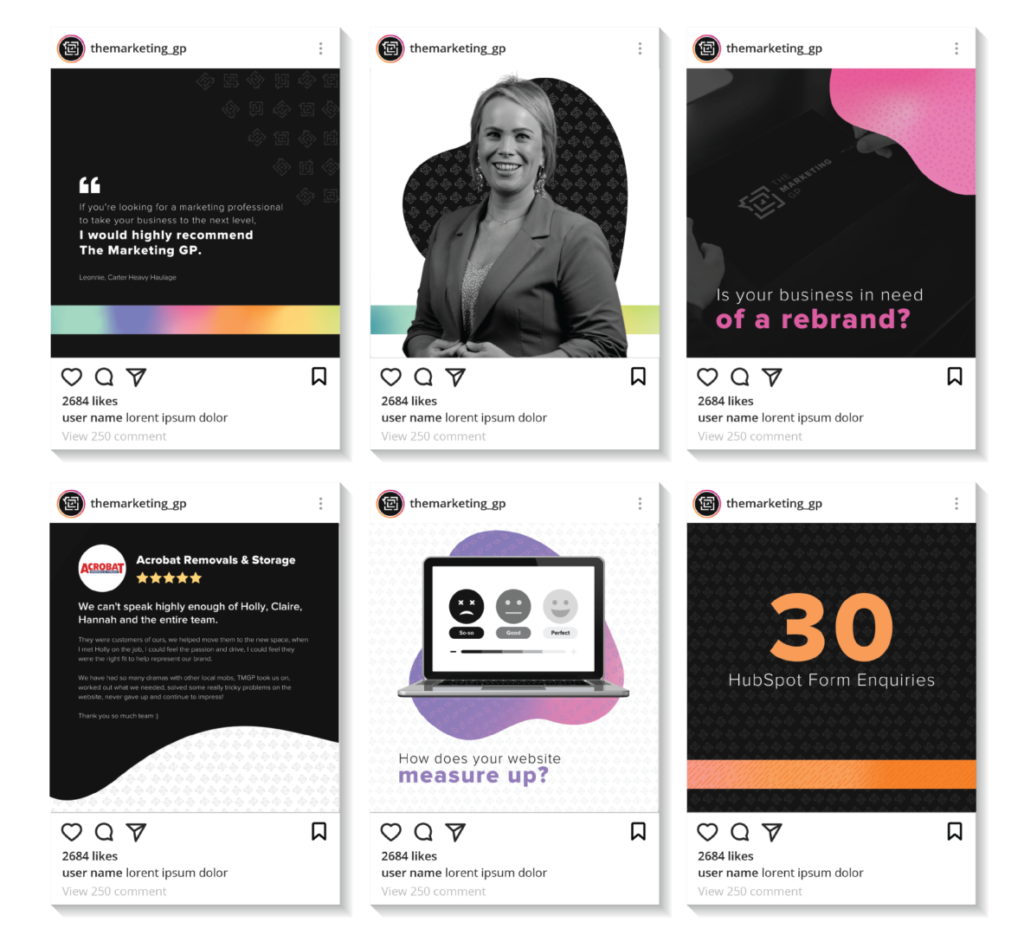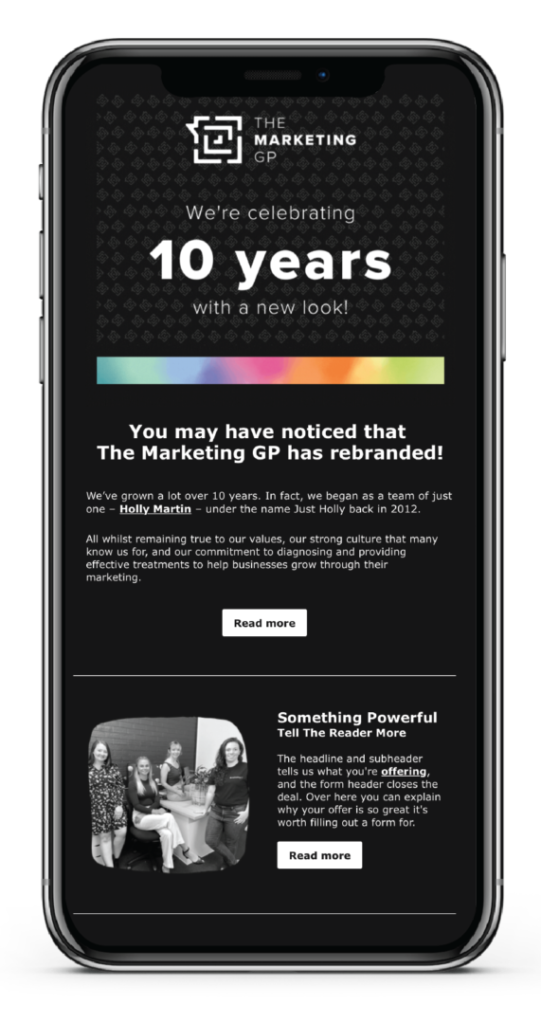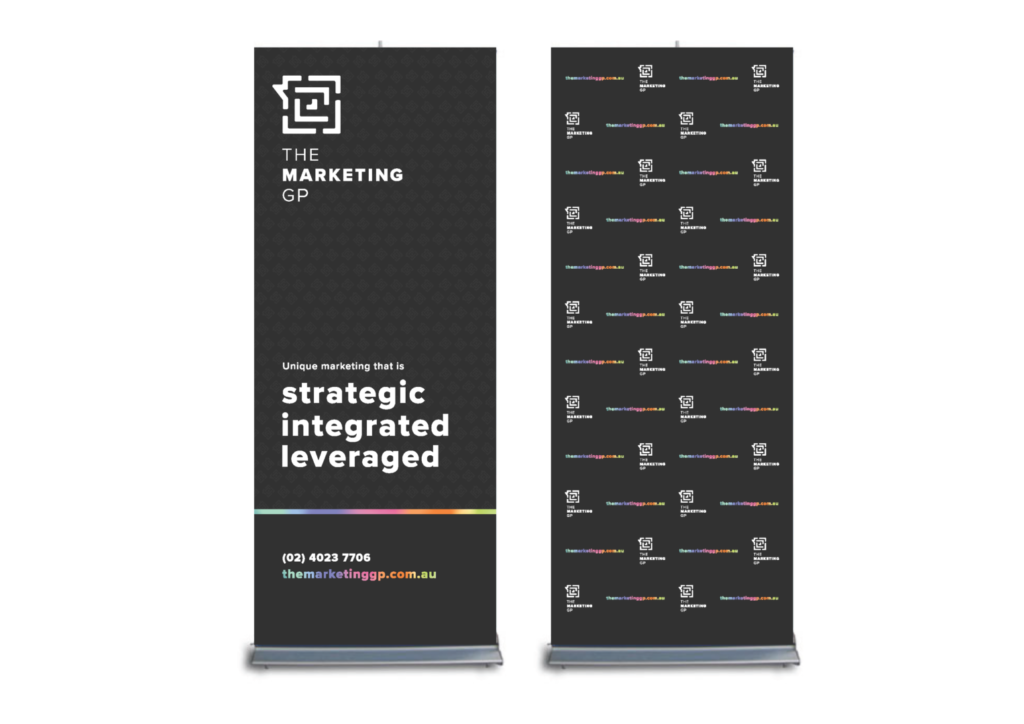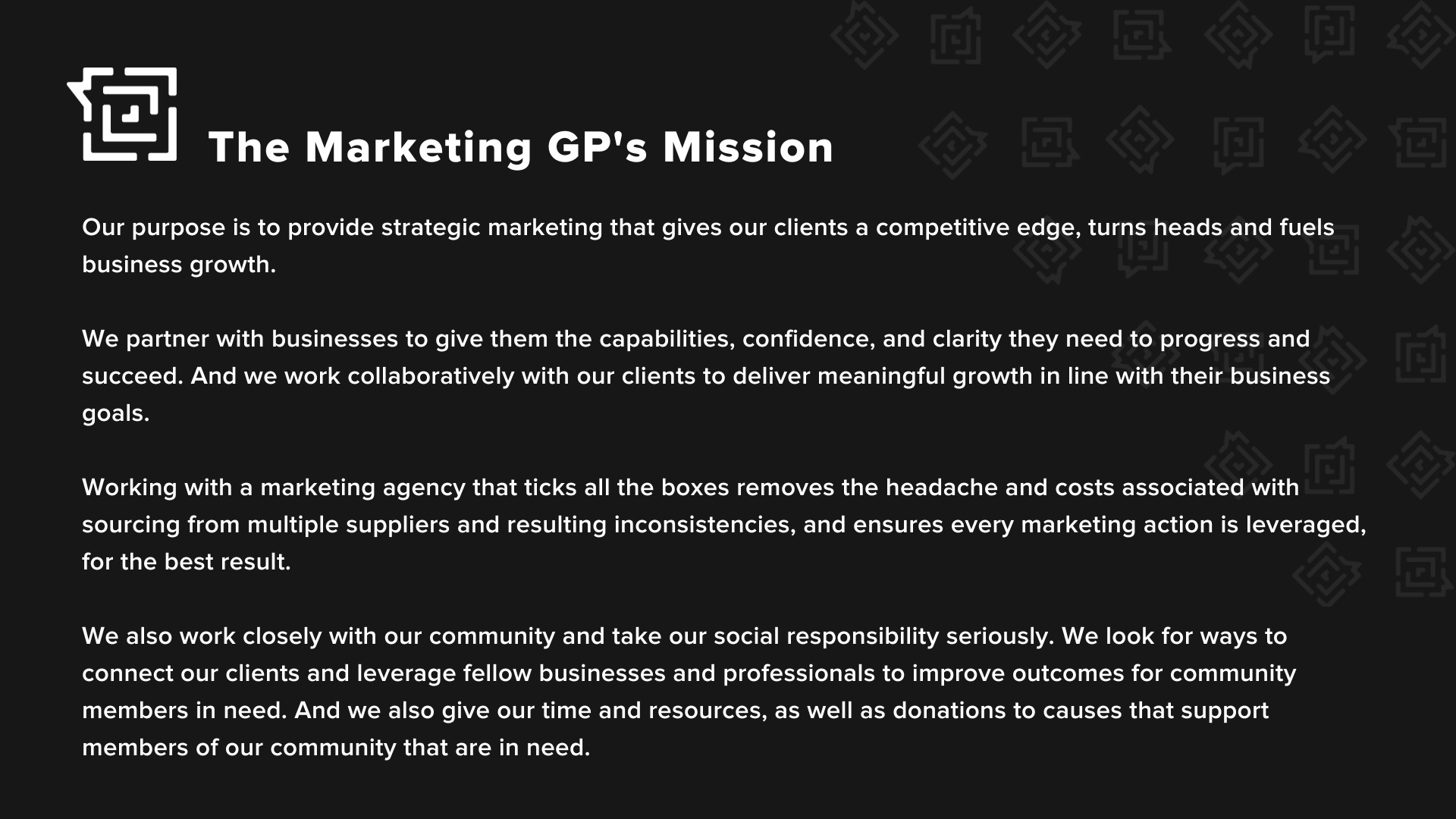What’s the difference and how to make them work together
Do you know the difference between your external branding and your internal branding?
When you think of your brand, did you think of your logo, how customers see your business, your colours and fonts? Most people do! But what you also need to think about is how you sell your business from the inside. I.e. your internal branding.
Businesses today need an internal and external brand to succeed. Better yet, they need to complement one another.
We break down why both concepts help to establish a strong brand identity, build trust, and foster loyalty amongst customers and employees.

What is external branding?
External branding is all about creating a strong and memorable brand image that resonates with your target audience and differentiates you from your competitors.
You’re probably familiar with most assets of your external brand – it’s how you intend the image of the brand to look, through visual identity and design.



External branding is like the icing on a cake – it’s how you present yourself, it wins your clients or customers over and it’s a tasty way to communicate your values.
A good brand will build trust, loyalty and advocacy from your audience. You can read more on branding your business here.
As a business owner or an in-house marketer, you understand your target audience and their needs, so you need to develop a unique brand personality and tone of voice that resonates with them and builds emotional connections.
Want to blend your internal and external branding?
Book a meeting with our Chief Marketer, Holly Martin to discuss how we can transform your branding.

What is internal branding?
Why focus on this side of branding when all you want is the shiny new logo (the icing on the cake)?
A cake can look good – we’re picturing a triple stack cake with some red velvet icing and some succulent-looking strawberries on top. But what happens when you take a bite – this is where the ingredients really need to perform.
If you haven’t created a consistent brand from the inside out, you’ll experience some serious issues with brand engagement and trust.
So, what is internal branding?
It all comes down to developing a solid and inspiring corporate culture that connects with both your staff and your clients. Internal branding involves establishing and maintaining a consistent brand identity, so you need to consider:
- The message you want to convey, (we recommend creating mission and value statements).
- How you envision your reputation with your clients, with the use of tone of voice and key messaging.
- How clients recognise your brand amongst your competitors.
- What does your team culture look like?
- Do your unique benefits and perks lean into your outside personality (external branding)?
When done right, internal branding can help create a sense of community and belonging among employees, which in turn can lead to improved productivity, employee satisfaction, and retention rates. And trust us when we say these shines through your marketing activities externally as well.
It also enables employees to become brand ambassadors, which can be incredibly valuable in building brand awareness and loyalty among customers.
Take the Mission of The Marketing GP for example:


What comes first? External or Internal branding?
It’s a case of the chicken vs the egg. We all love a shiny new logo, but diving into the meaning behind it first sees a better result.
Sir Richard Branson Virgin Australia says to build the internal first, “…clients do not come first. Employees come first. If you take care of your employees, they will take care of the clients.”
And we have to agree!
The Marketing GP is built on our culture and our strong internal brand bolsters our many services. Team meetings, training opportunities, volunteering initiatives and many more supportive benefits are at the core of our business. Our external branding is an extension of these elements!

Connected internal and external branding
How do you connect your business’ internal and external branding?
Effectively combining the two concepts creates consistent and authentic brand imagery that resonates with both employees and potential customers. We recommend nailing the following aspects to seamlessly blend the two together:
Alignment
Internal branding and external branding should be aligned with each other. The values, mission, and vision of the brand that are communicated internally should be reflected in the external brand image as well. Think about how you are advertising or how your social media posts convey your business’ values and mission statement.
Brand culture
A strong internal brand culture can create passionate and engaged employees who are proud to be associated with your company. Such employees can become brand ambassadors who can promote the brand externally and help create a positive brand image. For example, an employee is wearing a work shirt (one with a logo on it) at a networking event and is singing praises about their workplace. This is great external branding coming from internally!
Communication
Effective communication is key. Employees should be well-informed about the brand’s external activities, and customers should be informed about the brand’s internal activities and culture.
Consistency
The brand identity should be consistent across all internal and external touchpoints to create a unified and identifiable brand image. Stand out!
Feedback
Regular feedback from employees and customers can help in aligning internal and external branding. Feedback from employees can help improve the brand culture, whilst feedback from customers can help improve the external brand image.

HubSpot culture is driven by a shared passion for their mission and metrics. It is a culture of amazing, growth-minded people whose values include using good judgment and solving for the customer.
Employees who work at HubSpot have HEART: Humble, Empathetic, Adaptable, Remarkable, Transparent.

Apple’s modern and futuristic headquarters “…is built around the popular misconception among tech companies that chance collisions with co-workers while hot-desking on a massive campus is what begets new ideas and innovation.”
The energy-efficient campus leads into their innovative, staff-centric and creative brand.

Google’s mission of organising the world’s information is reinforced through the company’s values of innovation, transparency and collaboration. They continue striving to organise global knowledge and make it universally accessible and useful.
A strong and memorable brand identity can help businesses drive growth and achieve long-term success. How will you action this within your own brand, both internally and externally?

